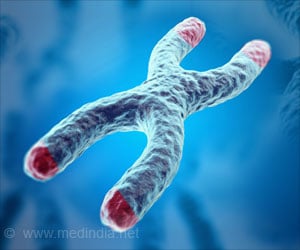The gene present in an extra copy of human chromosome 21 that causes Down syndrome could be responsible for neurological disorder symptoms.

‘The dysregulated levels of Down syndrome cell adhesion molecule (DSCAM) are a potential pathogenic driver in related neurological disorders.’





The University of Michigan (U-M) presented this as a major challenge in Down syndrome research and treatments, which is determining which gene(s) on the chromosome contribute to which specific symptoms of the syndrome. Their findings are published in the journal PLOS Biology.Researchers Target an Aspect of Down Syndrome
In this study, researchers have demonstrated how an extra copy of DSCAM contributes to neuronal dysfunction by studying mice having a third copy of the mouse equivalent of chromosome 21. They previously determined that an overabundance of the protein encoded by DSCAM can cause an overgrowth of axons in fruit fly neurons.Now, they have found that a third copy of DSCAM in mice leads to increased axon (part of the neuron that sends signals to other neurons) growth and neuronal connections, called synapses, in the types of neurons that put the brakes on other neurons’ activities.
These changes lead to greater inhibition of other neurons in the cerebral cortex – a part of the brain that is involved in sensation, cognition, and behavior. They also showed that the extra copy of DSCAM is the primary cause of the excessive inhibitory synapses in the cerebral cortex.
The normal axon growth in mice was present with only two copies of DSCAM, but three copies of the other genes that are similar to human chromosome 21 genes. These results are striking because, although these mice have an extra copy of about a hundred genes, normalization of this single gene, DSCAM, rescues normal inhibitory synaptic function.
This suggests that modulation of DSCAM expression levels could be a viable therapeutic strategy for repairing synaptic deficits seen in Down syndrome.
Advertisement
Advertisement











